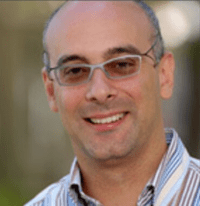 What is the most overlooked dynamic of traditional honor-shame cultures? In my opinion, it is anything related to patronage. This is why I’m excited about the upcoming meeting in Beirut (October 2018):
What is the most overlooked dynamic of traditional honor-shame cultures? In my opinion, it is anything related to patronage. This is why I’m excited about the upcoming meeting in Beirut (October 2018):
The Patronage Symposium: Exploring the Gospel in Patron-Client Contexts
In this post, I’ll explain why I think the Patronage Symposium is strategic and timely. I’m grateful to be invited as a participant and would love to meet you there
What do we mean by “patronage”?
One reason people tend to neglect the topic is the word itself. “Patronage” sounds so formal and distant to our modern lives. We contour ideas of feudalism. Naturally, many people don’t realize how much it affects cultures the world over.
Patronage is better explained than defined. This is because it has several facets and forms. In patron-client contexts, key themes generally include benefaction, gift-giving, and loyalty. Each of these affects and is influenced by status and rank.
-
Reciprocity
Two parties should exchange some type of good, whether tangible (money) or intangible (praise). The giving of a gift created a debt. It produces an expectation or obligation that some return will be made for the gift that was given.
-
Unequal Status
The two parties typically have unequal social status. In the ancient Mediterranean, for example, wealthy patrons would bestow gifts to a city or favors to individuals with lower status. In exchange, the recipient would publicly praise the benefactor for his generosity.
-
Relationships
The exchange of gifts creates and develops ongoing relationships. This factor distinguishes reciprocal relationships from everyday business transactions. In many Asian cultures, one person will give a gift to someone else with whom they want to begin a friendship. Westerners often get confused by this gesture and so are prone to interpret it as a bribe of some sort.
For a scholarly summary of patronage in the ancient world, check out Zeba Cook’s short essay.
The Theological and Strategic Importance of Patronage
Patronage, reciprocity, and related matters will influence our interpretation of the Bible and mission practice in various ways. Previously, I have written a series on grace (gift-giving) in the ancient world. Obviously, the call the faith is a call to loyalty. The health of our relationships across cultures in part depends on our understanding of these dynamics.
If you want to spend a few days in conversation about this topic, consider joining us in Beirut next year. The meeting is not so much a conference as a symposium. What does this mean?
The organizers plan to keep the group relatively small (less than 50 participants) in order to facilitate constructive discussion. Both theologians and practitioners will participate. Below is additional information from the symposium website.
Speakers
The following presenters have verbally committed to participating in The Patronage Symposium. If you are interested in presenting a workshop, please complete this form.
 Dr. Martin Accad, Chief Academic Dean of ABTS and former Director of The Institute of Middle East Studies
Dr. Martin Accad, Chief Academic Dean of ABTS and former Director of The Institute of Middle East Studies
 Dr. David deSilva, Trustees’ Distinguished Professor of New Testament, Ashland Theological Seminary, author of Honor, Patronage, Kinship, & Purity (*will present through videoconferencing)
Dr. David deSilva, Trustees’ Distinguished Professor of New Testament, Ashland Theological Seminary, author of Honor, Patronage, Kinship, & Purity (*will present through videoconferencing)
 Dr. Randolph Richards, Provost and Chief Academic Officer at Palm Beach Atlantic University, author of Misreading Scripture with Western Eyes
Dr. Randolph Richards, Provost and Chief Academic Officer at Palm Beach Atlantic University, author of Misreading Scripture with Western Eyes
 Dr. Jackson Wu, Professor of Theology in East Asia, author of Saving God’s Face
Dr. Jackson Wu, Professor of Theology in East Asia, author of Saving God’s Face
 Jayson Georges, founding editor of HonorShame.com, author of The 3D Gospel.
Jayson Georges, founding editor of HonorShame.com, author of The 3D Gospel.
Cost:
The all-inclusive cost of $299 includes all conference fees, 3 nights lodging, and all meals at Arab Baptist Theological Seminary, plus airport shuttle. All participants must arrange and pay for their own travel to Beirut, Lebanon.
Schedule:
Participants should plan to arrive on Oct 2 and depart after 3pm on Oct 5.
Day 1 (Oct 3, all day): Listening –This day will focus on hearing local paradigms and taxonomies for patronage. Dr. Martin Accad will moderate the morning discussion with Arab leaders about patronage. The afternoon session will present models of patronage in other global contexts (i.e., African, Asian, Latin), then conclude with Dr. deSilva’s presentation on patronage in the early church community.
Day 2 (Oct 4, all day): Reflecting — How can Christians embody and proclaim the gospel in patron-client contexts? The second day will focus on theological and missional issues related to patronage, especially practical issues such as business development, leadership training, church relations, etc. This day will feature seven workshop presentations along with collaborative discussions.
Day 3 (Oct 5, until noon): Synthesizing — The final morning session will synthesize the symposium and develop actions points for further development.
Registration:
To enable deeper interactions, the symposium will be limited to ~40 participants. To request an invitation, complete this short application form. For further information, email patronage2018@gmail.com.
















